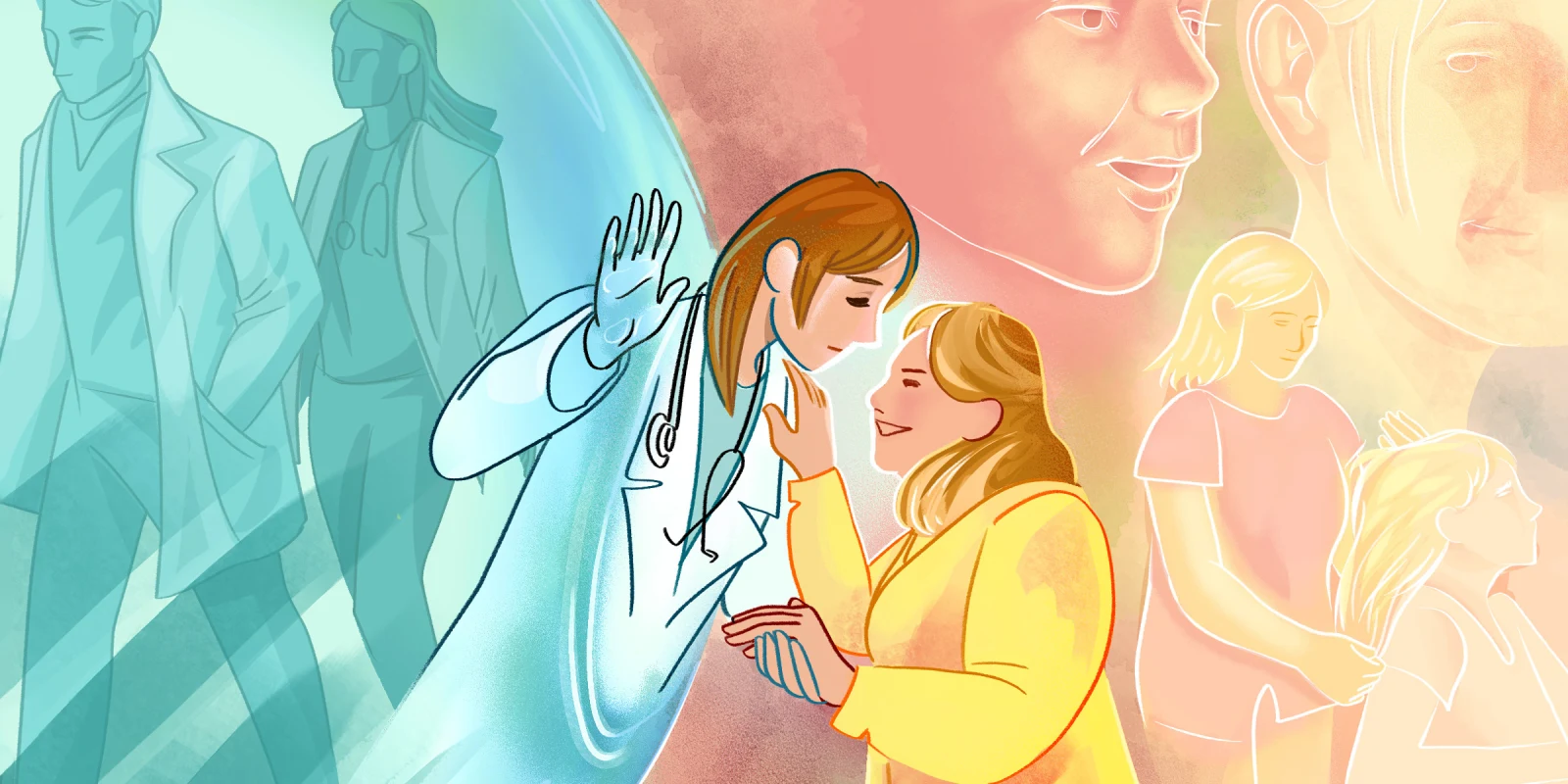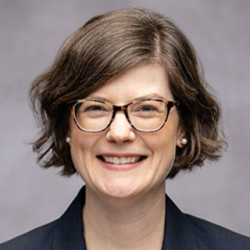In summer 2024, Doximity ran our Women in Medicine essay contest. We are happy to announce this as the runner-up.
“You mean, this coming Friday?” I asked, feeling my heart drop upon hearing the news of my mother’s upcoming surgery, a complex-sounding procedure requiring two surgeons at an academic medical center.
“Yeah, sorry for the late notice — I just found out. But they said it was important to get this taken care of fairly soon,” she replied.
Friday was my all-day clinic day. I felt torn between my clinical and teaching responsibilities and my desire to be there for my parents. I considered the patients, residents, and colleagues who depended on me. As a physician, missing work to sit in a waiting room seemed almost absurd. After all, I couldn’t control the surgical outcome, and it was an early case, several hours away, so I might not even get there in time to meet the surgeon beforehand.
Then I thought of my father sitting alone in the waiting room for most of the day during my mother’s surgery. The image stirred memories of another time my personal and professional lives had clashed, and I had failed to recognize what mattered most.
It was during my fourth year of medical school, when I was on a sub-internship rotation in the specialty I was pursuing. I had stopped for gas on my way to the hospital when I got the call from my father. My grandfather had suffered a cardiac arrest and had been airlifted to a large hospital after several rounds of CPR. He was critically ill, requiring a balloon pump.
My father, an only child and my widower grandfather’s primary support, was on his way to the hospital, still several hours away. I asked if he wanted me to meet him there. If I had taken off immediately, I would have likely arrived not too long after he did. He declined, and although I knew deep down that he would never ask me to leave my rotation, I too readily accepted his response.
I’m sure I felt relieved since rerouting from my training hospital to the one where my grandfather lay would mean missing a day of what I perceived as a critical “audition” rotation, one I believed I had to excel in to achieve my career goals. After all, a basic requirement for success in medical training is showing up. But while I may have checked all the boxes as a future physician that day, I had magnificently failed at something more important to me — being a daughter.
In retrospect, it’s clear that my failure to go be with my father that day did not align with my hierarchy of values, where family is placed firmly before career. But at the time, I had not yet learned how to navigate situations where I had to choose between my personal and professional obligations, between showing up for my family or for my patients.
My grandfather deteriorated quickly, and when my father made the difficult decision to change to comfort-focused care, he was alone, as no one in our family had been able to make it there. Now, 15 years later, he still speaks with a special reverence and gratitude for the hospital staff who were there with him when my grandfather passed. I am also so grateful that they were there, although I realized soon afterward that I should have been, too.
After my grandfather’s death, while sorting through things at his house, I told my father how sorry I was for not being there for him when my grandfather died. Tears came to his eyes as he assured me it was OK, but I knew it wasn’t. And I have always felt a deep sense of regret for prioritizing my career over my family’s needs that day.
Even as a student, I had internalized the culture of medicine and the demanding nature of practice, which together make you feel like you can’t take time off. We are taught, both explicitly and implicitly, to be there for our patients at almost any cost. Sometimes, this is helpful, when showing up while not at your best is the right thing to do. But there are times when it isn’t, and it can be incredibly difficult to say “no.”
Systemic barriers, such as inadequate backup coverage availability or employer requirements to make up missed time, can serve as additional challenges to taking needed personal time. Additionally, physician schedules are often made a year or more in advance, and it is difficult to accommodate our own or our family’s needs when they cannot be forecast that far into the future.
The fact is, though, that while we are replaceable at work, we are not replaceable to our families. As a mother, wife, and daughter, there is only one option: me. But as a physician, usually appointments can be rescheduled or others can step in for me, when needed, even when it doesn’t always seem like it.
It can be difficult to know how to play the cards you’re dealt and when to draw a line. However, it is crucial to pause and reflect on whether work is as important as you think that day, or if you need to be somewhere else. Since my grandfather’s death, I’ve promised myself to never again put my work ahead of my family’s needs, even if all they need is simply for me to be present.
When I finally decided to take the day off to be there for my mother’s surgery, I felt a huge sense of relief, knowing I was prioritizing what mattered most and aligning my actions with my values. As a daughter, it was essential for me to be there, fully present, as a supportive, flexible helper.
So, instead of seeing patients that day, I played Uno with my father in a surgery waiting room. I didn’t do much other than keep him company and navigate UberEats to order lunch from our favorite sandwich shop.
But this time, I was where I needed to be, and I would do it again, in a heartbeat.
Share a time you were glad to prioritize family over work.
Victoria Johnson is an academic internal medicine physician at the University of Illinois Chicago, where she teaches hospital medicine and health humanities.
Illustration by April Brust







